Universal Social Distancing: The Ultimate Test for Business Leaders
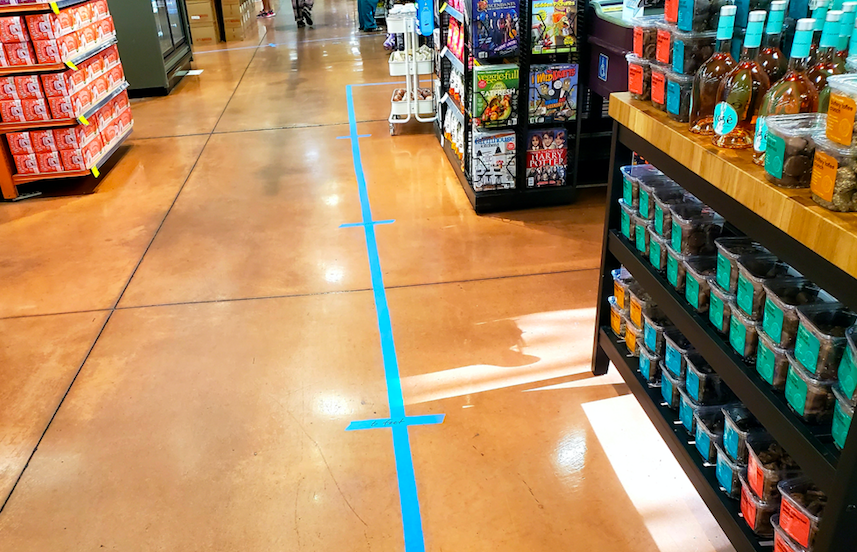
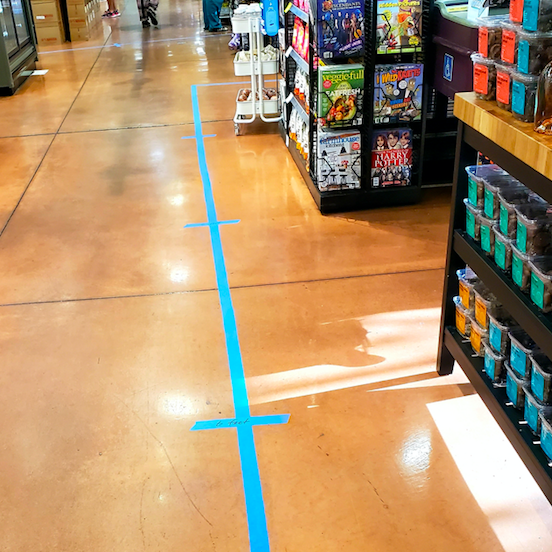
Earlier this week, President Trump suggested that he would allow COVID-19 social distancing guidelines to lapse prematurely. In effect, he argued for enabling a deadly disease to race unchecked through a population of 327 million, potentially killing more than 2 million citizens. Surely leading brands will push back with all their might against such a reprehensible notion…won’t they?
The COVID-19 difference
In the absence of a vaccine for COVID-19, social distancing — literally, keeping people away from other people, including those stricken with the virus, of course — is the only way to stop the spread.
Generally speaking, the practice of social distancing is no big deal. People do it all the time. It’s the standard response when encountering someone with a cold, fever, pinkeye or any other obvious transmissible condition.
The problem is that many people can carry COVID-19 without showing it, or even knowing it. The symptoms can take days to emerge. In some cases, the symptoms don’t come up at all, or they are mistaken for other illnesses.
Making matters worse, the U.S. was slow to begin testing for COVID-19, and there is still a dire shortage of test kits. Unless there are special circumstances, few people without symptoms are being screened for COVID-19, making it more likely for people to spread the disease unwittingly.
Then there is the lethality factor. Catching COVID-19 is not a mild annoyance. It is a potential death sentence. There is no drug to reduce severe COVID-19 symptoms, let alone cure the disease. People with severe symptoms have to rely on ventilators to breathe while COVID-19 runs its course, all too often with fatal results.
In short, social distancing is different for COVID-19. It has to be universal, not selective, at least until many more people can be tested and screened. That will take weeks.
In the meantime, social distancing under COVID-19 has to be highly disruptive or it won’t work at all.
Meh, what’s a few more human lives
The effectiveness of a swift, aggressive, long-duration social distance strategy is supported by the experience of other countries with outbreaks, notably China and South Korea. The tragic consequences of inaction are amply demonstrated in others, such as Italy.
One nation that is especially relevant to the U.S experience is the United Kingdom. Even with the unfortunate example of Italy practically at his country’s doorstep, Prime Minister Boris Johnson initially adopted a relaxed policy toward social distancing, much like President Trump.
Though health experts almost universally argued against it, the U.K. policy was based on the idea that a “soft” approach would result in more exposures more quickly, but it would also generate sufficient herd immunity to protect the population — eventually.
As may be expected, many people in the U.K. didn’t follow the gentle social distance guidance. The death toll mounted, and “eventually” became “not fast enough to avoid mass slaughter.” Earlier this week Prime Minister Boris Johnson finally issued strict lockdown orders.
Leading on social distancing from the top down
The global pattern is clear: forceful leadership from the top is the only way to enforce universal social distancing across a wide population. Simply suggesting or advising people to be careful is ineffective.
People certainly won’t be careful if shops, services and recreation areas are kept open.
Here in the U.S., a handful of mayors and governors got the message and locked down their jurisdictions, exempting only supermarkets and other businesses deemed essential.
Many leading U.S. retailers — with at least one notable exception — have also voluntarily shut down all their brick-and-mortar operations, even in states where they are still permitted to open their doors.
Nevertheless, last Sunday night President Trump suggested the economic upheaval of the past week has been too big a price to pay.
Trump tweeted: “WE CANNOT LET THE CURE BE WORSE THAN THE PROBLEM ITSELF. AT THE END OF THE 15 DAY PERIOD, WE WILL MAKE A DECISION AS TO WHICH WAY WE WANT TO GO!”
He reiterated the same message during a press conference on Monday, stating that “we can’t have the cure be worse than the problem.”
Bottom line, it’s a pandemic: no more business as usual
It is not difficult to trace the process by which the President came to that conclusion, or to understand his personal interest in returning to business as usual.
The problem is, there is no business as usual in a pandemic.
As numerous commenters have pointed out, massive economic upheaval — “the cure,” as it were — is one and the same with “the problem itself.”
The results of prematurely dropping the ball on social distancing are not difficult to anticipate. Millions of people will go about their day, spreading disease, with millions of others incapacitated by severe symptoms, or skipping work to clog hospitals, morgues, funeral homes and cemeteries — and untold numbers of workers will be forced to stay home and care for the sick and dying.
That’s certainly no way to run an economy, and the sooner U.S. business leaders speak up and put an end to the president’s nonsense, the better.
For that matter, Trump left himself plenty of room to be argued out of his position.
After all, he did not say that businesses should open after 15 days. He only said he will make a decision about “which way we want to go” after 15 days.
Go for it, business leaders. The time to speak up is now, as millions of lives are at stake.
Image credit: Leon Kaye
Why Businesses Must Stop Dithering and Learn to Love the Defense Production Act


The year was 2017. The global financial crisis of 2008 was a distant memory. The economy was booming, there was no national emergency, no lethal pandemic and no urgent shortage of medical supplies. In fact, there were no urgent shortages of any overarching kind, whether medicine, food, or fuel. And yet, in 2017 President Trump invoked the Defense Production Act.
His explanation for doing so underscores why health care advocates, businesses and other U.S. citizens have been imploring the president to exercise his authority under that same piece of legislation to address the COVID-19 crisis — which actually is a full-blown, urgent, life-threatening emergency.
What is the Defense Production Act?
The Defense Production Act (DPA) was enacted in September 1950, shortly after the U.S. officially entered the Korean War. Its primary aim was to mobilize key domestic industries for war — steelmaking, for example — while guarding against price gouging, labor exploitation and other market abuses.
It is important to note, though, that DPA is not limited to wartime use. It has been updated, reauthorized and invoked many times since 1950.
The full title of DPA leaves plenty of wiggle room for non-war uses. It is, as the full title explains, “an Act to establish a system of priorities and allocations for materials and facilities, authorize the requisitioning thereof, provide financial assistance for expansion of productive capacity and supply, provide for price and wage stabilization, provide for the settlement of labor disputes, strengthen controls over credit, and by these measures facilitate the production of goods and services necessary for the national security, and for other purposes.”
In fact, President Trump first invoked DPA within months of taking office. As recorded in the Federal Register on June 15, 2017, the president determined that certain technology related to the aerospace industry would not be available in a “timely manner” without presidential action under DPA.
As explained in the Federal Register, the president determined that “purchases, purchase commitments, or other action pursuant to section 4533 of the Act are the most cost effective, expedient, and practical alternative method for meeting the needs for those critical technology items” (emphasis added).
That rationale fits the current COVID-19 crisis to a T. Nevertheless, as of this writing the president has only signed an executive order invoking DPA, without taking the concrete actions necessary to actually implement its provisions.
Wait, so DPA could have been officially activated weeks ago?
Yes, DPA could have been officially activated weeks ago. Or months and years ago, for that matter.
Another recent example occurred in 2012, when President Obama formally invoked DPA on behalf of the U.S. Navy. After the Republican-controlled Congress blocked the Navy from purchasing biofuel on the open market, Obama’s DPA authority provided seed money for the construction of four biofuel plants, earmarked for the Navy.
The U.S. was far from a fuel crisis in 2012, and yet DPA kicked in.
As for the current crisis, the president’s own Federal Emergency Management Agency (FEMA) updated its COVID-19 position on March 20, 2020, confirming its readiness to implement presidential authority pursuant to both the DPA and Title VI of The Robert T. Stafford Disaster Relief and Emergency Assistance Act.
“The Act requires companies to prioritize government orders and contracts that are necessary to meet the response efforts associated with the coronavirus COVID-19 pandemic,” FEMA explains. “Authorities can also be used to provide financial incentives and assistance to private industry to expand production and capacity for necessary supplies and resources."
Why is the president hesitating?
Why, indeed. Despite urgent and repeated pleas for a coordinated, expedited federal response to the COVID-19 crisis, the president continues to lean on individual governors to resolve their own state’s problems.
That clearly presents a problem in terms of the national welfare. Instead of collaborating on priorities, states that have mobilized resources on COVID-19 are forced to compete with each other, and with the federal government, for supplies.
The insistence on state-level leadership is also more than a little ironic, considering that presidential authority under DPA was recently renewed in 2018, just one year after Trump took office.
The renewal affirmed Title III of DPA, which “provides the president broad authority to ensure the timely availability of essential domestic industrial resources to support national defense and homeland security requirements through the use of highly tailored economic incentives,” as explained by the DPA Title III Office, which is part of the U.S. Department of Defense.
“Specifically, the program is designed to create, maintain, protect, expand, or restore domestic industrial base capabilities,” adds the Office.
Business leaders step in where the president fears to tread
In other words, the president has had the tools, the authority, and the precedent, to act well in advance of the catastrophe and coordinate a nationwide effort to ramp up production of vital supplies before waves of sick people began crowding into hospitals.
The job of picking up the pieces is now left to U.S. business leaders.
Some of them appear to bear at least some of the blame for the mess; reportedly, the U.S. Chamber of Commerce has been among those lobbying the president to rely on voluntary private sector efforts instead of implementing DPA.
That’s something to keep in mind as 3M, Facebook, Tesla and other leading companies suddenly come through with their own plans for increasing production or turning over their own stockpiles of face masks and other critical supplies.
In the meantime, the president’s responsibility seems to consist only of applauding from the grandstand while businesses scramble over each other for a share of a new, lucrative market.
On Sunday, for example, The Hill cited a tweet from the president that said “the auto companies will be permitted to “make ventilators and other metal products, FAST! ‘Go for it auto execs, let’s see how good you are?’”
Easier said than done. As pointed out by NBC News among many other news outlets, ventilators are complicated, expensive pieces of equipment. Converting an auto factory to make ventilators will be an equally complicated and expensive endeavor that could take weeks or months, even as the window of time squeezes shut.
Then there’s the whole matter of the specialized supply chain for medical ventilators, of which metal is only one part.
As auto makers and other companies ramp up ventilator production, they will be competing for parts and raw materials, putting even more upward pressure on prices.
Some companies appear to have taken these issues into close consideration, with General Motors being one example.
At the other end of the scale, the lack of presidential leadership leaves the field open for a worst-case scenario in which scores of U.S. manufacturers at all levels of readiness, quality and expertise rush pell-mell to secure their supplies, giving rise to needless inefficiencies and delays.
Apparently, that is the best that the American people can expect given the lack of leadership from the White House.
As for the ability of U.S. business leaders to fill the void — in protecting workers as well as producing medical equipment — frankly, so far the record has been mixed.
Image credit: Natanael Melchor/Unsplash
EdTech Companies Easing the Transition to Distance Learning in Wake of COVID-19
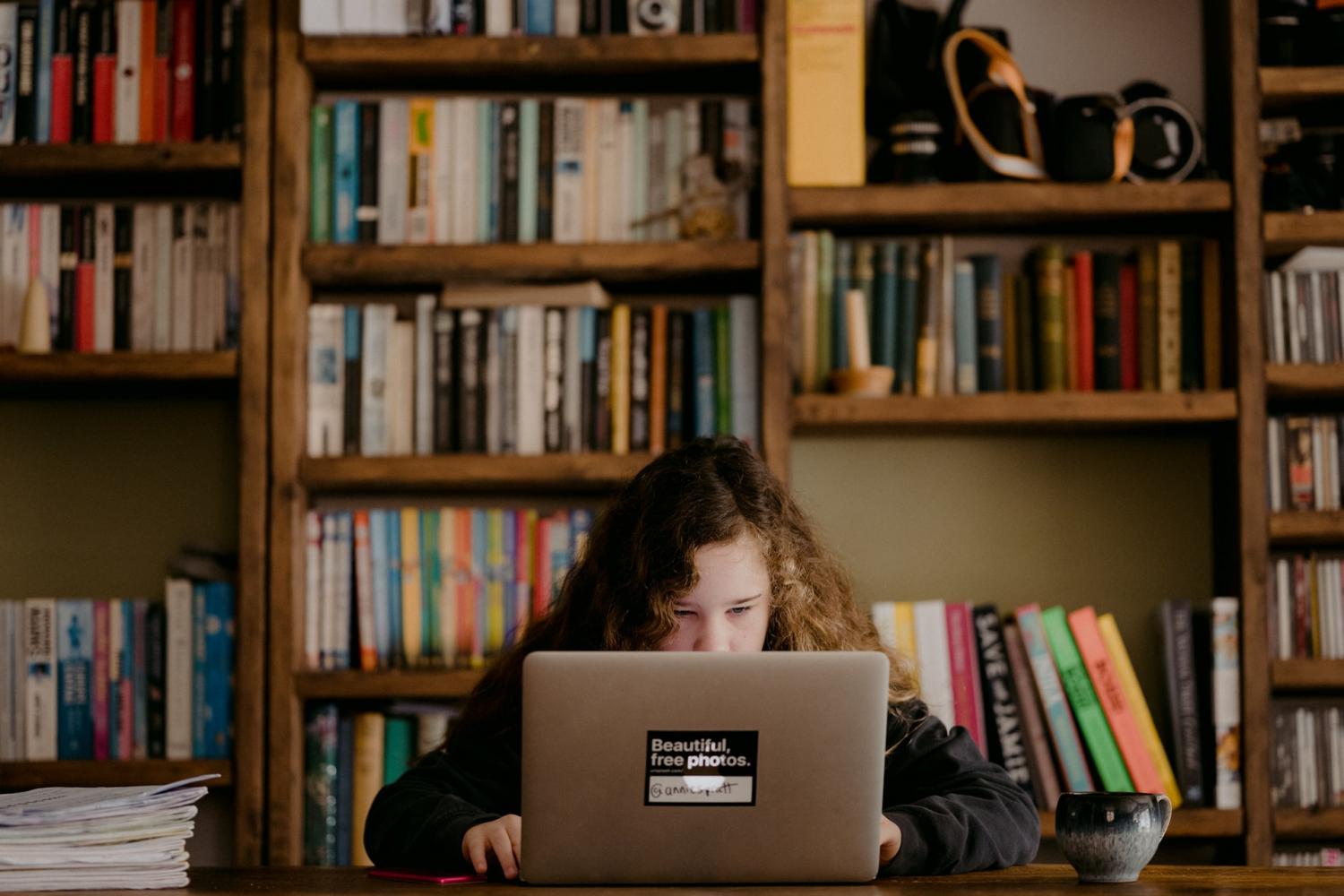

It is the start of my family’s second week of at-home schooling. My husband, a high school science teacher, is conducting class from his computer in our home office. My three-year-old son and I have just completed this morning’s “virtual” distance learning session using Zoom. In the afternoon, we will review some of the e-books, websites and videos his preschool teachers have recommended for this week. This is education in the age of COVID-19.
As of press time, UNESCO reported more 1.3 billion children around the world were out of school due to coronavirus closures. As governments, school administrators, teachers, parents and students continue navigating this new reality, several educational technology (edtech) companies are offering expanded or free products and services. Here is a look at four organizations hoping to ease the transition to distance learning.
Google: On March 3, Google announced it would be offering free advanced video-conferencing capabilities for all G Suite and G Suite for Education customers until July 1. Highlights include conference calling for up to 250 participants, live streaming for up to 100,000 viewers, and the ability to record and save meetings to Google Drive. This offer could save organizations between $13 and $25 per user per month, The Verge reports.
Google also updated its Teach from Home Hub, which provides educators with additional assistance in creating and implementing lessons within Google Classroom. There are tutorials and advice for everything from building a class website to livestreaming lectures to staying in touch with fellow teachers.
Khan Academy: Edtech nonprofit powerhouse Khan Academy has been offering free online distance learning courses on everything from math to reading to science for over a decade. Before schools began closing in early March due to coronavirus, Khan Academy had 18 million monthly users and 10,000 available classes. By March 16, after most schools in the U.S. had switched to at-home learning programs, the website saw a 50 percent increase in traffic.
Recognizing the need for more online-learning guidance during this time of transition, founder Salman Khan has produced a series of free daily schedules and articles to help families and teachers create a routine during this pandemic. Khan Academy is also offering a series of live streaming and webinars to address specific concerns people may have regarding learning during school closures.
VitalSource: Many schools closed so suddenly in the wake of the coronavirus that students were unable to take their textbooks home with them, even though the semester is only half over. VitalSource and its network of partners are addressing this problem by offering students and teachers access to electronic versions of their textbooks and classroom materials.
From March 16 to May 20, college and university students can access a library of free textbooks through the VitalSource Bookshelf app. Participating publishers and retailers include Barnes & Noble Education, Pearson Education, Macmillan, McGraw-Hill Higher Education, and more.
Zoom: Videoconferencing app Zoom is certainly having a moment right now. Many schools are using it as part of their distance learning plans. Last Thursday and Friday, it was the third most downloaded free app in Apple’s App Store. And Zoom-related memes abound.
Zoom CEO Eric Yuan made news last week when he announced he was lifting the 40-minute conference time limits for any K-12 school in areas affected by COVID-19. (Normally the unlimited conference time feature is reserved for paid Zoom accounts.)
“I told the team that with any crisis like this, let’s not leverage the opportunity for marketing or sales. Let’s focus on our customers,” Yuan said in an interview with Forbes earlier this month. “If you leverage this opportunity for money, I think that’s a horrible culture.”
Image credit: Annie Spratt/Unsplash
Garment Companies Take the Lead in the Fight Against COVID-19
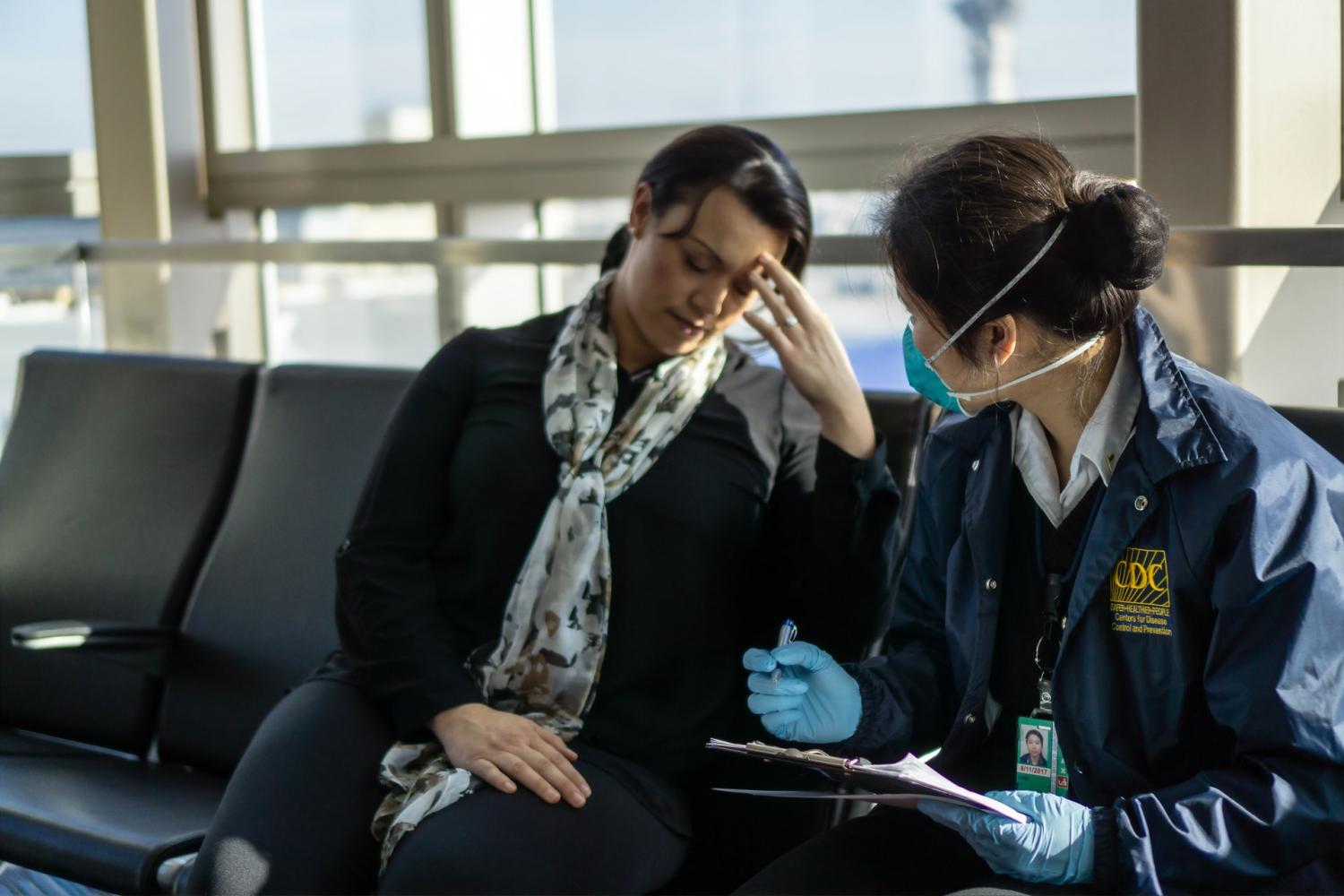
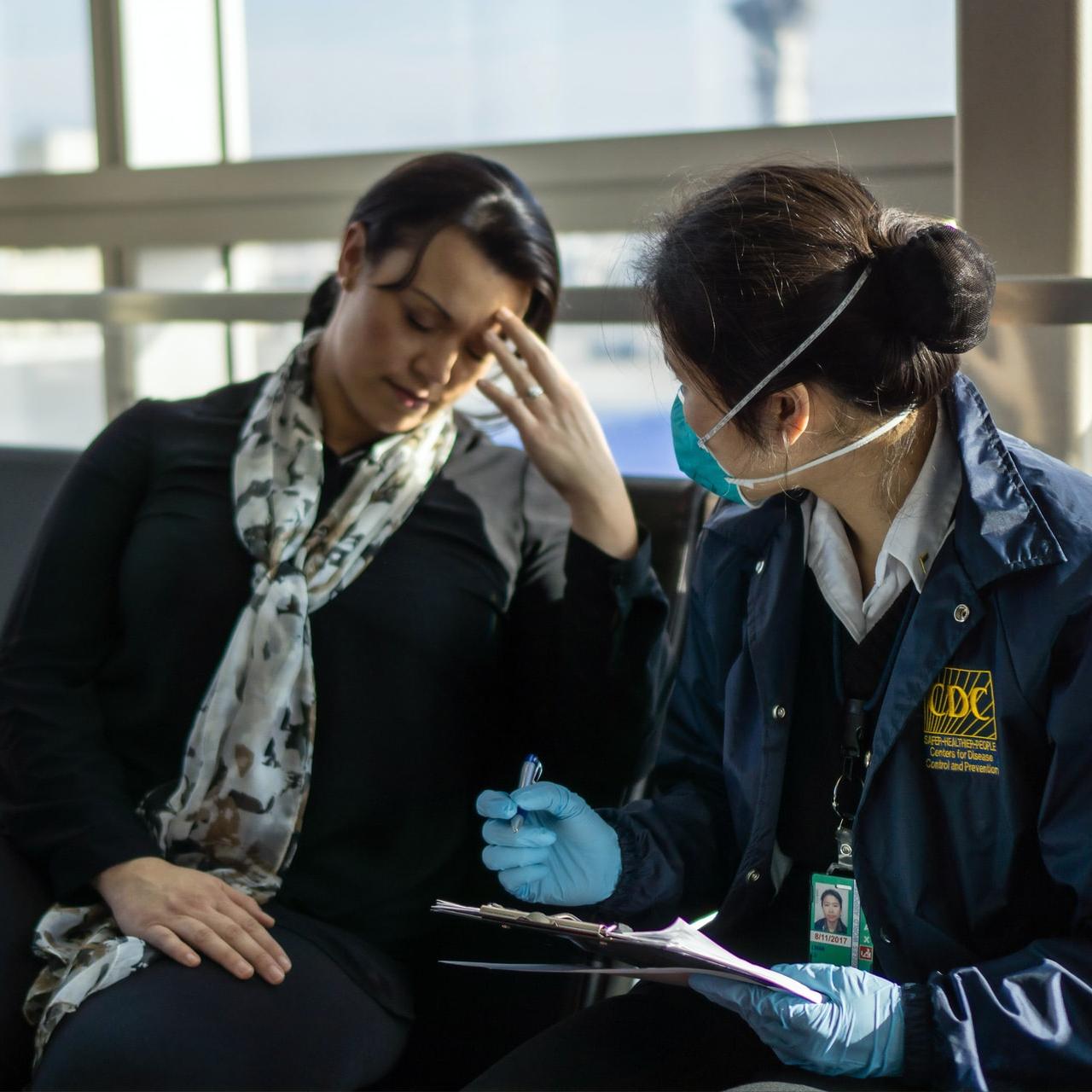
One of the more inspirational yet heartbreaking stories we’ve witnessed in the ongoing COVID-19 crisis is that the smallest of companies are punching above their weight as they do their part to look out for people who have been affected the most.
You’ve probably seen this trend unfold in your town or city. For example, there are countless local restaurants on the brink that are diverting a huge part of revenues from takeout orders to employee relief funds. We’re now seeing heroic efforts on behalf of garment manufacturers and fashion designers in New York City, which practically overnight became ground zero of the COVID-19 crisis here in the U.S.
Fashion designers commit to making PPE
We can argue endlessly over who came up with the idea first, but the ball really got rolling late last week when New York Gov. Andrew Cuomo sent out an urgent plea for personal protective equipment (PPE) including gloves, N95 masks and gowns. Christian Siriano, a past winner of Project Runway who has since become a mentor on that show and a successful designer in his own right, asked other designers to help with this effort. Now, work is underway to provide medical professionals with desperately needed PPE, and the effort continues to surge across the U.S.
Since Friday, the wider fashion industry has responded in kind at breathtaking speed, while, as of press time, the White House has resisted taking more aggressive action that would involve ordering companies to manufacture PPE.
In the meantime, more apparel companies on both sides of the pond have said they will contribute resources to this uphill fight, including the house of luxury brands Kering, fast-fashion giant H&M, Zara’s parent company Inditex and North Carolina-based HanesBrands.
Anna Gedda, who is the head of sustainability at H&M, said in a public statement: “The coronavirus is dramatically affecting each and every one of us, and H&M Group is, like many other organizations, trying our best to help in this extraordinary situation.”
These apparel companies’ efforts come days after LVMH, the parent company behind brands like Christian Dior and Givenchy, said it would harness all of the production facilities for its perfume and cosmetics brands to produce hand sanitizer for medical professionals and hospitals in France.
A race against time as COVID-19 cases keep rising
During an interview Sunday on CNN, Gov. Cuomo summed up what he and other governors are up against as they strive to provide hospitals with the PPE they need:
“We now have a situation where every state on its own is trying to acquire these goods, and . . . we're actually competing against each other. So we find a mask manufacturer, I'm trying to contract with them, California's trying to contract with them, Texas is trying to contract with them. Masks that we paid 85 cents for, we're now paying $7. Okay?”
More resources are still needed as PPE supplies dwindle
Maxine Bédat, director of the New Standard Institute, an organization pushing the global apparel industry to achieve science-based environmental and social targets, on Sunday urged more fashion brands to join the fight against COVID-19 despite these harrowing times — and to do their part to protect their employees as well:
“Brands, we know you are going through massively challenging times, we beg you to consider your workforce, especially the most vulnerable, the garment workers, we will remember and reward those that do. People are waking up, so establish good faith now."
For anyone who thinks the COVID-19 crisis is overhyped and dismisses calls to shelter in place and stay inside, remind them of what we are up against. Case in point: 3M is one manufacturer that says it has aggressively ramped up its production of PPE — in this company’s case, N95 masks. According to 3M’s CEO, Mike Roman, the company has doubled its production of N95 masks to 35 million a month in the U.S. Yet the fear among many healthcare workers is that this is still far short of the amount of PPE they need.
So, largely due to the slow action at the federal government level, we need more companies to step up.
Image credit: CDC/Unsplash
Agraloop: Using Waste to Transform Wasteful Fashion
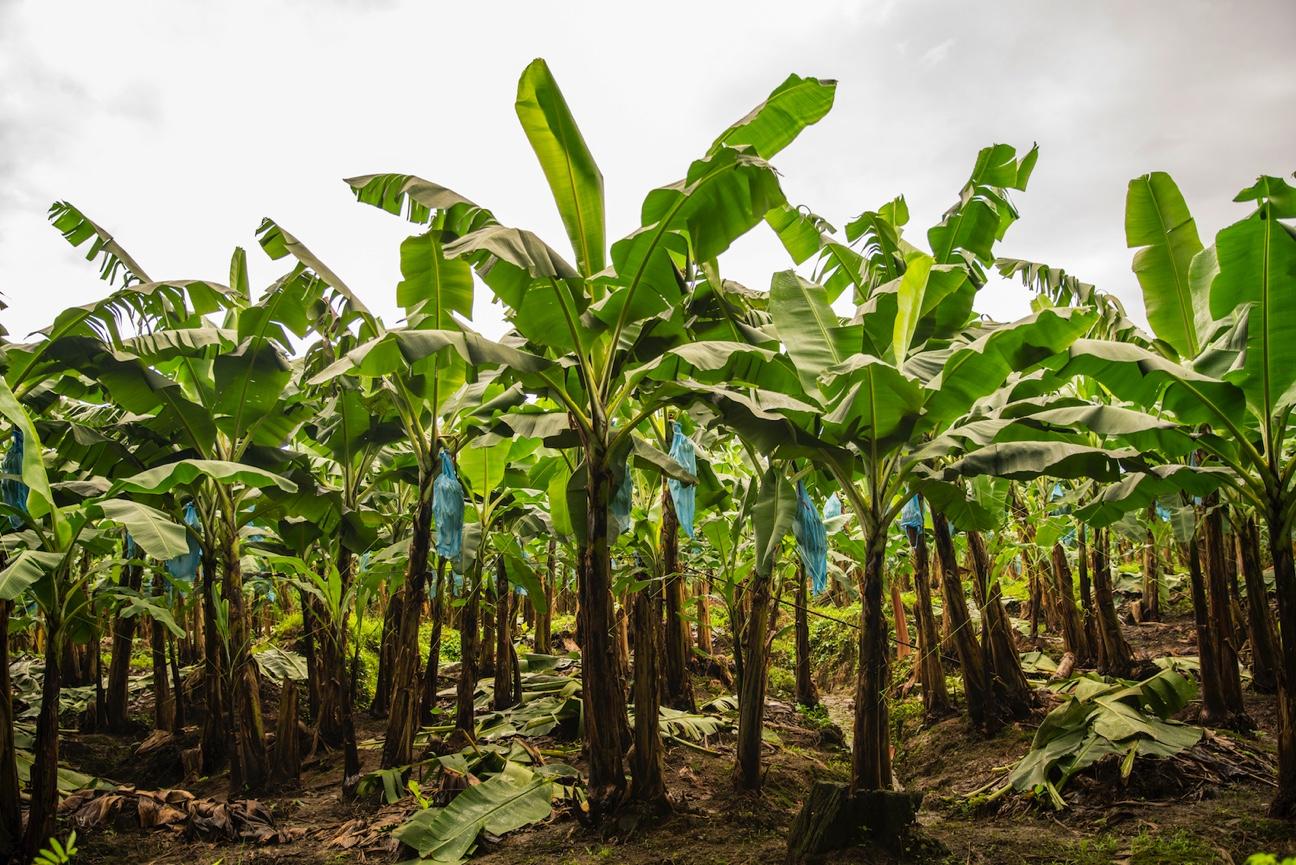
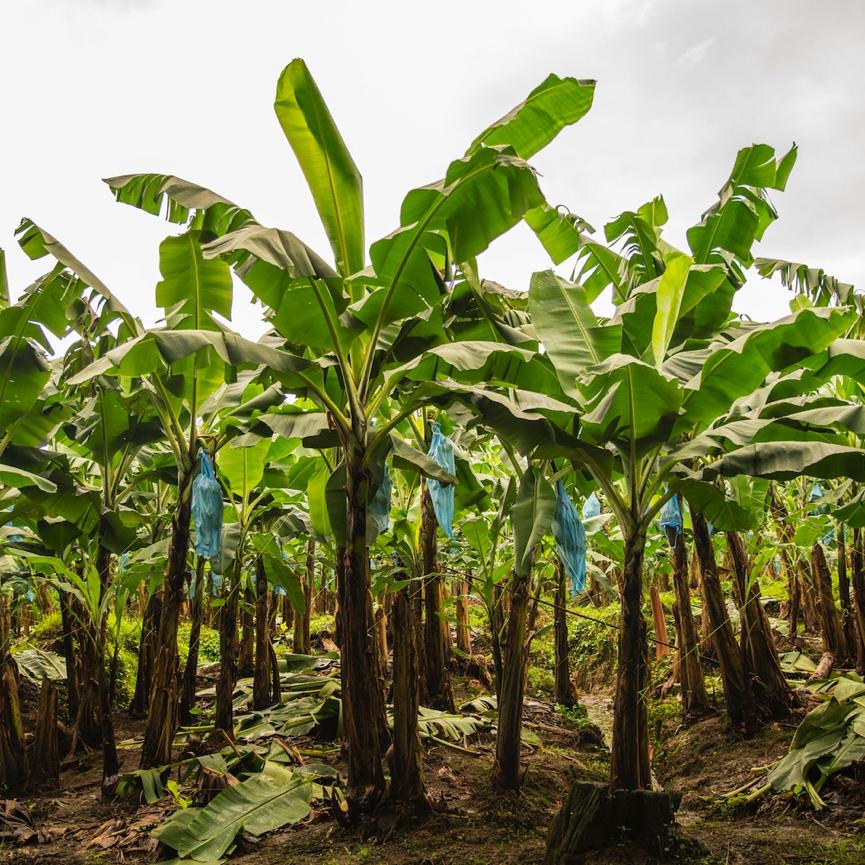
The fashion industry is in a position to make changes that can engender sustainable growth once we recover from this current public health and economic crisis. Materials sourcing is one opportunity, and it’s due for a makeover — especially as petrochemical-based synthetics have grown to 60 percent of clothing material.
Transforming the sourcing and creation of fibers and materials can set a company apart from the crowd and, if done correctly, can help sustain the industry for years to come.
Bleak predictions for fashion in 2020
Even before the COVID-19 outbreak became a full-blown global crisis, McKinsey’s State of Fashion survey reported that executives, thought leaders and pioneers were apprehensive about fashion’s prospects this year. Fashion executives across segments and regions saw growth slowing in 2020. Only 9 percent of respondents to McKinsey's survey said they expect conditions to improve in 2020, compared with 49 percent in 2019.
Among the 10 defining themes McKinsey identified as driving the fashion industry in 2020 are building resilience, putting sustainability first and revolutionizing materials.
“Fashion players need to swap platitudes and promotional noise for action on sustainability measures such as energy consumption, pollution, and waste,” the report reads.
“Despite modest progress, fashion hasn’t yet taken its environmental responsibilities seriously enough. Next year, fashion players need to swap platitudes and promotional noise for meaningful action,” the consultancy said in a video summarizing the research.
At last count, the global textile industry emitted 1.2 billion tons of greenhouse gas emissions a year, a quantity that rivals that of the automobile industry. Pesticides, water use and water pollution are just a few other blights the fashion industry needs to tackle to remain sustainable. That’s not to mention the stubborn presence of child labor and unethical employment in many of its supply chains.
Enter Agraloop, a trademarked regenerative process for creating natural fiber from food crop waste that can be scaled across the globe. The system could also serve as a template for local sourcing as global supply chains are threatened with disruption. And that’s exactly what Agraloop’s creators aim to do.
Decentralizing fashion to support the globe, the industry and farming communities
Circular Systems — the startup that created Agraloop, as well as a host of other waste-transforming technologies — has completed a pilot of its mill in China and says it has plans to launch a fully-localized operation in Belgium. The technology won the H&M Foundation’s 2018 Global Change Award.
While the pilot in China used oilseed hemp food crop waste from Canada and the European Union, the system in Belgium will rely entirely on feedstock from local farms to make garments in Europe. Operations will run on renewable energy from Belgium’s grid, and wastewater effluents will return to local farms in the form of organic soil amendments.
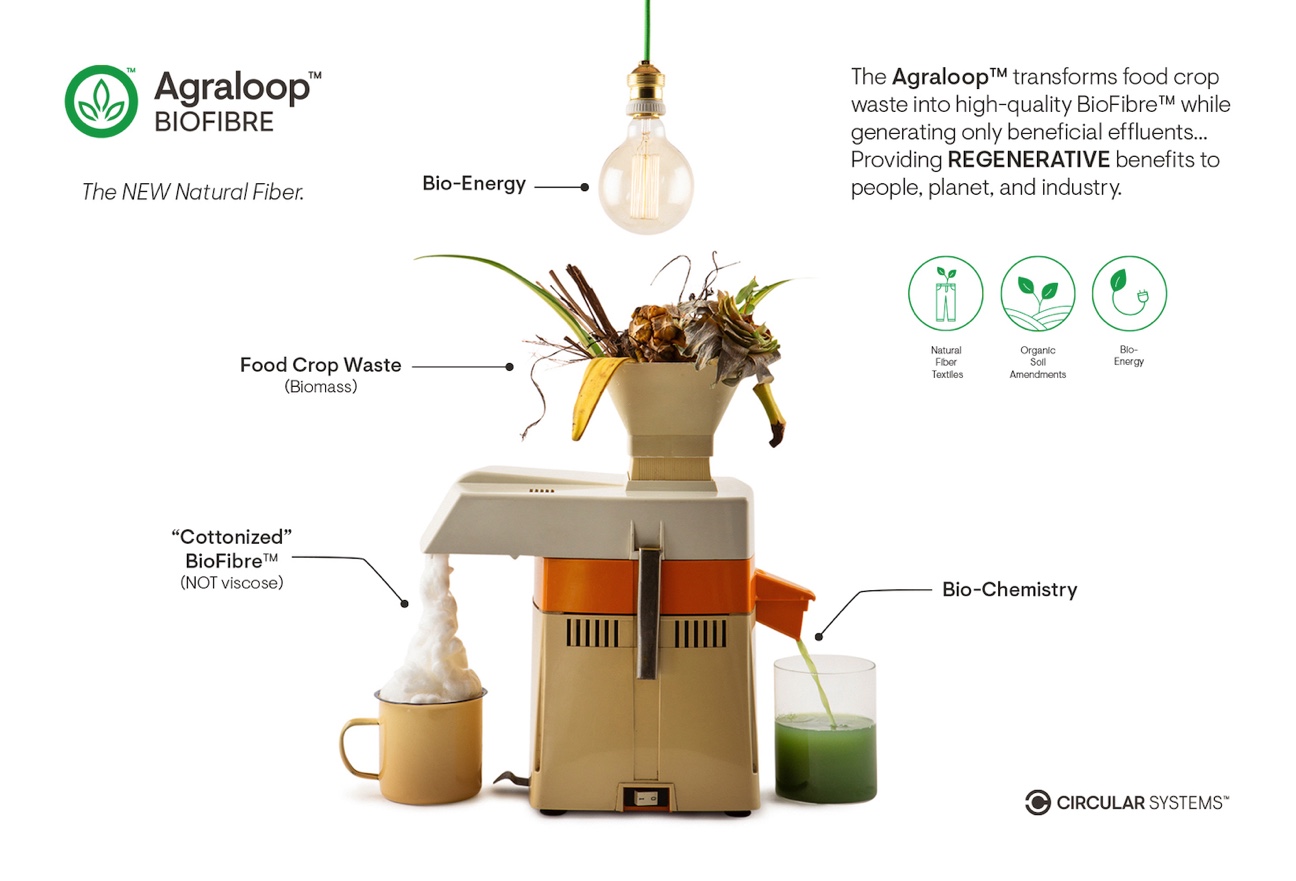
(Image: A quick layperson's description of how the Agraloop system works.)
The power of Agraloop is in its ability to benefit agricultural regions, all while transforming the global fashion industry.
The system is micro-regional, Isaac Nichelson, co-founder and CEO of Circular Systems, told TriplePundit. The mills would serve less than a 150-mile radius and would be fed by three to five pre-processing substations where the materials are first handled and processed.
As Agraloop scales, the Circular Systems team hopes to license the technology and joint venture with regional stakeholders to build and operate the mills, Nichelson said. Circular Systems wants local stakeholders to become controlling shareholders of the technology. “The goal is empowering that local community to be in charge of its own destiny with dignity,” he told us.
Nichelson sees Agraloop bringing income and jobs to communities and fertilizer and support to farmers.
Ecological benefits, from global warming to water
Not only does the company make use of waste; its process also eliminates greenhouse gas emissions normally produced from fiber production, upcycles wastewater and generates organic fertilizer that returns to the farms Agraloop relies on.
That fertilizer helps increase the ability of soils to sequester carbon. Fortifying soil health can be effective in reducing atmospheric greenhouse gases.
On a more technical, but no less important, note, the Agraloop process does not include sodium hydroxide, which textile companies use during the mercerization process that allows fabric fibers to become both dyed and strengthened. Nichelson explained further: “The makers of sodium hydroxide will tell you, ‘What’s to worry about? It’s just salts.’ But unfortunately, these salts are extremely caustic, and they are a disposal problem after water filtration, during fiber extraction and upgrading, and during all dye processing and fabric finishing.”
Agraloop has been able to move away from sodium hydroxide by using its own bio-alkali, which keeps all byproducts organic and nontoxic.
The business case for creating a waste-based natural fiber
The business case for Agraloop is larger than helping apparel companies connect with ecologically-minded consumers — though that is a significant segment of the population. Agraloop can supply natural fiber in a landscape where there’s not enough cotton to meet global fashion needs, Nichelson said.
“We’ve hit peak cotton," he told us. "The market needs a new, scalable and cost-effective natural fiber.” Agraloop, which uses oil-seed hemp, oil-seed flax, pineapple leaves, banana trees, cane bagasse and rice straw, can fill that niche.
The technology is seeing support from major brands, including H&M Group and Converse. H&M said, as of now, it will launch products using Agraloop-based material during the 2020 holiday season. Converse is developing Agraloop-based apparel and flagship products.
Once Circular Systems tests its facility in Belgium, the company’s driving goal will be to replicate Agraloop around the world as quickly as possible. Nichelson says the team is building with precision so that it can scale successfully. In the meantime, Agraloop is seed fundraising to help expand and optimize the commercial production that has already started.
Image credits: Circular Systems
More Retail, Grocer and Pharmacy Clerks Are Winning Paid Sick Leave
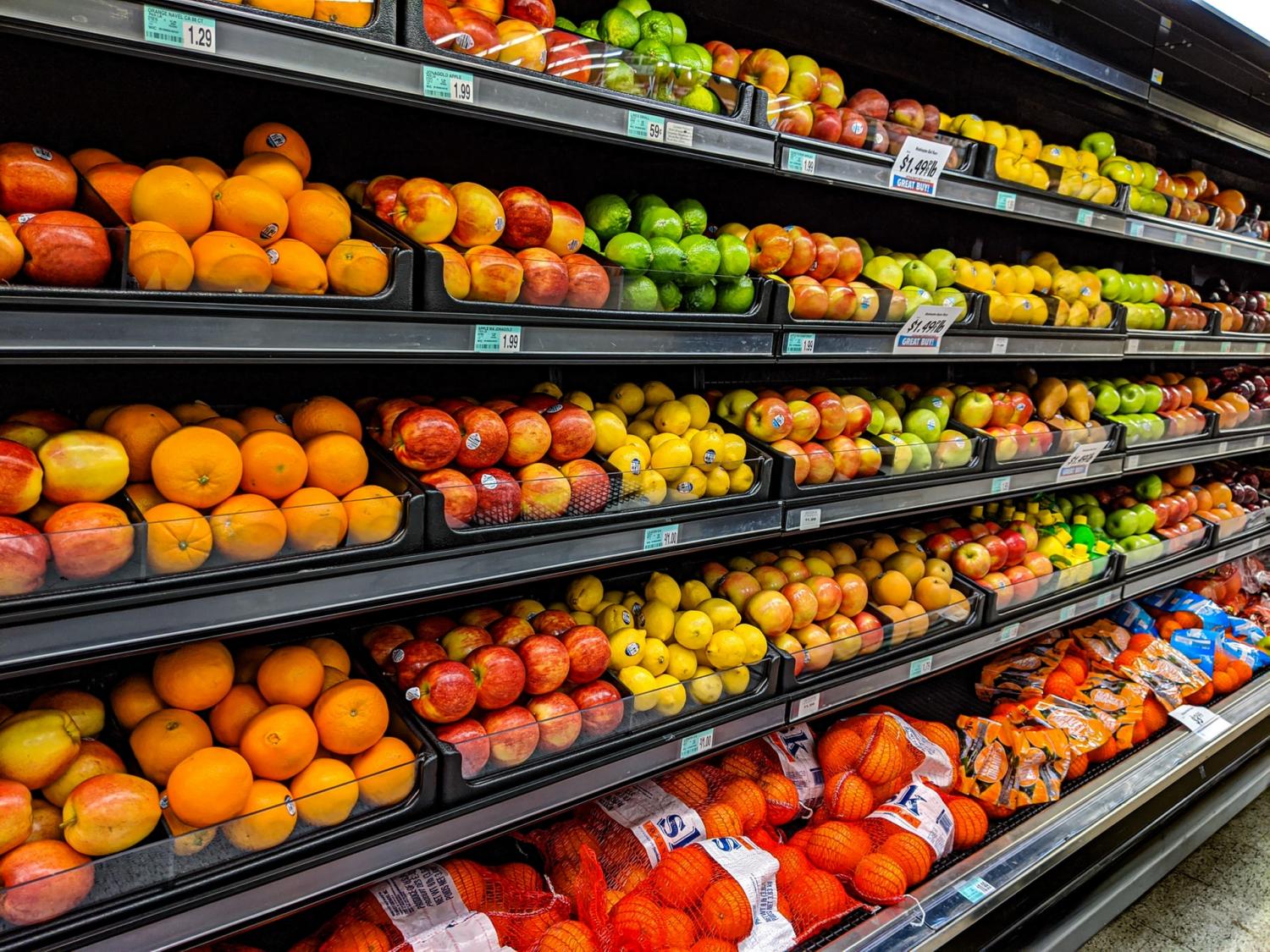
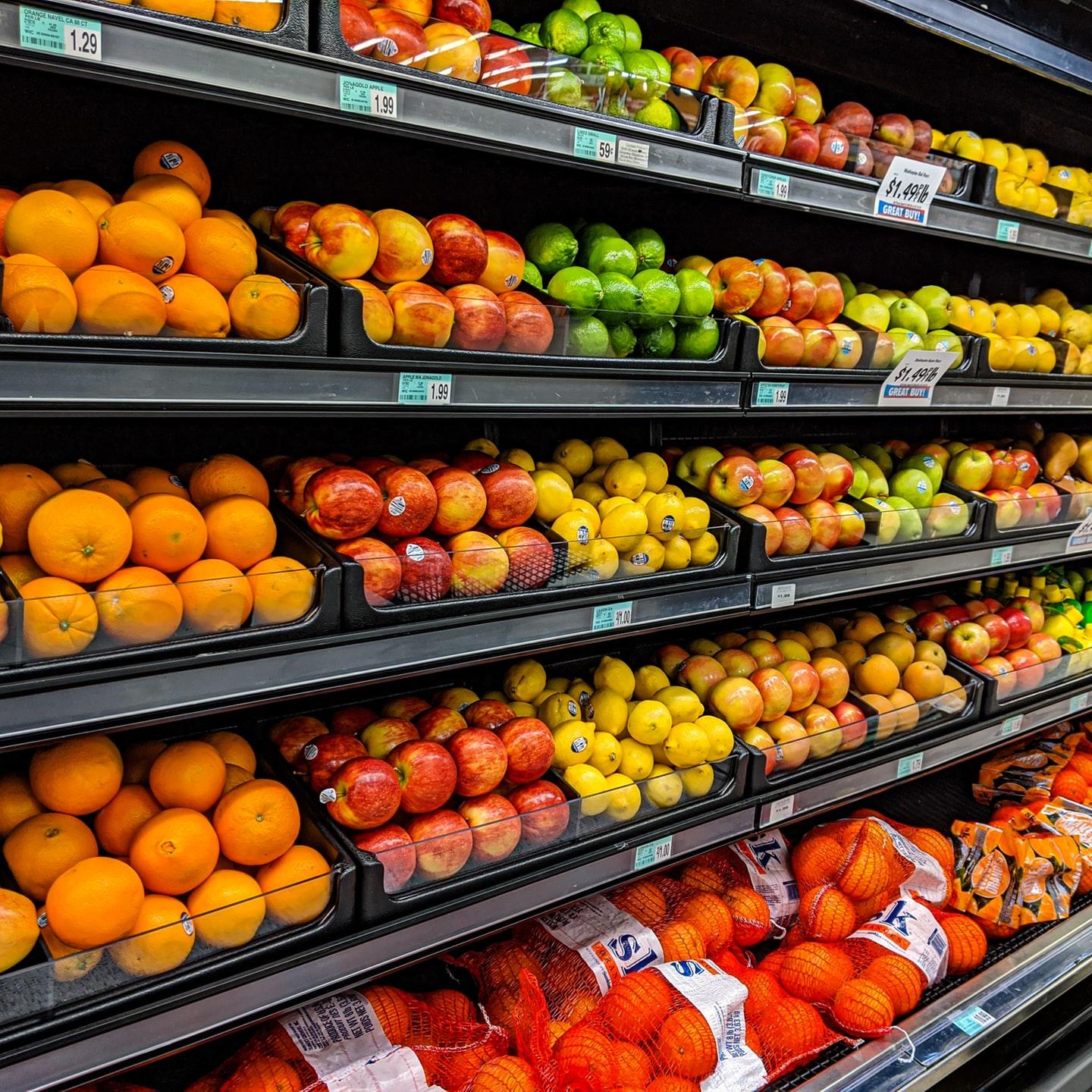
I wouldn’t call it a massive sea change, but as of this morning, we have definitely seen a shift in how the largest retailers in the U.S. are approaching paid sick leave. The U.S. business community has long balked at the thought of mandating paid sick leave, viewing it as too high of a cost for companies. But now, the stark reality of the COVID-19 crisis has shown that the public health risks are far too great to quibble over paying people, at a minimum, a couple weeks to stay home and be safe.
Paid sick leave can’t be about the ledger anymore
This shout-out highlighting our retail clerks by no means dismisses the sacrifice made by the medical professionals who are keeping us safe and healthy against daunting odds; face it there is no shortage of news coverage that is as inspirational as it is heartbreaking.
But going back to our retail clerks, whether they are at the world’s largest big-box chains or at the little family-owned Armenian delis here in my city, all are providing a vital service. At a most basic level, they are offering a sense of normalcy and routine at a time that is far from normal. If you feel annoyed by the empty store shelves or long lines, remember you’re not the one standing, face-to-face, with 20 or more people an hour.
And until this past week, many of these workers lacked the most basic of protections. But that’s changing. Some of this is due to such independent journalists as Judd Legum, who has been relentless in calling out supermarket chains for their lack of paid sick leave protections. Here at TriplePundit, we’ve had Tina Casey hold CEOs’ feet to the fire. “Panic-fueled shopping has become the rule of the day as COVID-19 spreads across the U.S., exposing yet another gaping hole in national leadership,” Casey wrote last week.
The bottom line: We believe business can lead where government fails. But we need to see more of it.
More retailers are stepping up
Here’s a few examples of the changes we’ve seen within the retail sector during recent days. To be fair, this is not an exhaustive list. And at a minimum, it shows an acknowledgement from executive leadership that the long hours these workers put in, with the massive angst they feel, matter.
Publix will offer full-time employees an additional 80 hours of “emergency pandemic pay,” while part-time employees now have a two-week paid sick leave benefit.
Texas-based H-E-B said it will give all retail, warehouse and transport employees a $2 boost in hourly pay. The grocery chain also serves as an example of how companies can communicate what they are doing during this crisis — take a look here. The company has also promised any of their employees who are affected by the crisis will be paid. "They were the first in the area to shorten their hours to give their workers time to restock and rest," noted 3p’s Kate Zerrenner.
Target has temporarily boosted its hourly rate by $2 an hour, and it's giving bonuses from $250 to $1,500 to 20,000 hourly employees. Workers over the age of 65, those who are at risk due to other medical conditions, and pregnant employees have access to up to 30 days of paid leave.
In addition to hiring as many as 150,000 more hourly employees, Walmart said it will distribute as much as $545 million in bonuses for its workers — which maxes out at $300 for an individual employee. Employees diagnosed with COVID-19 or who need to be quarantined due to exposure to the coronavirus will get up to two weeks paid sick leave and will not have to touch their regular allotment of sick time.
Keep your eyes on the food industry’s wider supply chain
Far more action is needed though, and we haven’t even taken a deep dive into the wider supply chain in the global food industry. Bloomberg is one outlet exploring this challenge, one that should worry us. And while many companies are promising million-dollar pledges, the stubborn fact is that what seems to be largess doesn’t amount to much when you break down that sum on a per-employee, or should we say, a per-human-being basis. We need to ensure the people who process and package the food that ends up on our store shelves are protected, too.
We here at 3p will do what we can to keep retailers accountable. In the meantime, at least smile at, and thank profusely, your local stores’ clerks. Small gestures of goodwill go a long way.
Editor's note: 3BL Media realizes many organizations have not budgeted for communicating their response to COVID-19. 3BL believes it’s important to help these purpose-driven organizations share how they're working to keep their customers, employees and communities safe. Organizations with press releases that fall into this category should feel free to submit them to COVID19@3blmedia.com for distribution over the CSRwire network at no charge.
Image credit: Unsplash
Drilling in the Amazon? Global Financiers Say Yes


2019 was a bad year for the Amazon – and, due to its role as the world’s carbon sink, for global climate as a whole. Massive fires, fueled by global supply chains, charred 2.2 million acres of tropical rainforest, an incalculable loss.
Now, if fossil fuel interests have their way, 2020 could be ever worse. According to a new report from the non-profit Amazon Watch, oil and gas exploration companies are pushing to expand extraction in the western Amazon, which includes parts of Colombia, Ecuador and Peru. Backing them are some familiar names: Citigroup, JPMorgan Chase, Goldman Sachs, HSBC and BlackRock, five of the largest financial institutions conducting business in the United States.
Fossil fuel companies keep targeting the Amazon
“The Amazon rainforest is crucial to climate stability, and oil drilling expansion is one of the greatest threats to it,” said Moira Birss, campaign director of the finance program at Amazon Watch to TriplePundit.
According to Birss, these financiers have made tens of billions of dollars available for oil and gas companies operating in this region. This is primarily done through their providing debt and equity financing.
This is, sadly, nothing new. There is a strong direct link between corporate brands, financial institutions, and deforestation in the Amazon. Amazon Watch previously named BlackRock, the world’s largest investment firm, as a leading investor in Brazilian agribusinesses connected to last year’s fires. Other companies implicated in illegal deforestation in South America are Cargill, which have been slammed by many NGOs including Mighty Earth, as well as agribusiness companies Archer Daniels Midland and Bunge.
More threats to human rights and biodiversity
The report details the risks to climate change, biodiversity, and indigenous rights if planned oil and gas development in the western Amazon moves forward. It also explores the potential impact for the Taromenane and Taegeri, two indigenous peoples living in voluntary isolation in the Ecuadorian Amazon. Amazon Watch fears they are at risk for extinction due to the pressure of oil expansion, which could also introduce them to diseases to which they lack immunity, including COVID-19.
“If they disappear, so will the linguistic and cultural knowledge they have developed over millennia,” said Birss.
In nearly every way, protecting this vast forest, its people, and other tropical, biodiverse regions, is a no-brainer. The massive collection of ecosystems alone absorbs 2 billion tons of CO2 per year, equal to five percent of global emissions. This is despite it only covering 4 percent of the Earth's surface. It’s also a unique biodiversity hotspot, with one third of the planet’s plant and animal species.
Time to re-examine those sustainability commitments
The irony is that the financial institutions that Amazon Watch called out all say they have sustainability or environmental commitments. Citigroup has a social and environmental risk management policy that states that they will “evaluate climate risk in our portfolio.” JP Morgan Chase has an environmental and social policy framework that explicitly states their commitment to protecting the environment and indigenous peoples rights. And BlackRock got a lot of attention for their new, more aggressive stand on climate action announced earlier this year.
Yet, when it comes to the Amazon, these commitments haven’t stopped them from investing, even if indirectly, in projects with obvious environmental, social and climate risks.
“We have yet to receive a substantive response to our findings, nor a response to our open request for a plan from each financier to phase out its financing of oil companies attempting to expand operations in the Amazon,” said Birss.
Amazon Watch wants the finance industry to make a clean break with deforestation and fossil fuels. They have launched a new campaign called Stop the Money Pipeline, calling for a radical shift in the finance industry away from fossil fuels and deforestation and towards a just, clean-energy transition. They’re also calling for shareholders or investors in the financial institutions to be more active in demanding accountability.
“If you are a customer or client...demand that the financial institutions with which you have relationships fully divest from Amazon crude oil,” said Birss. If they don’t act? Divest.
The reality is that financial institutions need to be proactive, not merely reactive, if they are to be part of the solution. If they can’t even stop investing in the destruction of the world’s most important landscape, the Amazon, something is terribly wrong.
Image credit: Amazon Watch/Facebook
Now More Than Ever, Everyone Can Help Support Global Water Access


As the world adapts to the novel coronavirus pandemic, the importance of fresh, potable water looms larger than ever before: water to slake thirst, water to soothe fever, water to wash hands over and over and over again. And yet, hundreds of millions of people around the world already live without access to safe, clean water. The outbreak has laid bare just how vulnerable they really are.
The business case to act on global water security in the face of climate change
Lack of access to clean water is usually associated with people in emerging economies or remote villages, but the rapid acceleration of the climate crisis has exposed everyone to risk. That universal risk comes into stark focus when an entire city — Cape Town in South Africa, for example — arrives at the brink of a water supply disaster.
In the U.S., climate change is clearly impacting the Colorado River. Fed by faraway mountain snow melt, the river is a lifeline for a string of cities and communities through seven western states, with 40 million people and $5 billion in agricultural activity depending on it. As snows become less frequent due to warming temperatures, the flow of the mighty Colorado has dwindled by 20 percent compared to the last century, researchers say.
As early as 2014, water managers in 40 of the 50 U.S. states anticipated water shortages in the coming years, even under average conditions. Globally, the World Resources Institute’s Aqueduct Water Risk Atlas lists 17 countries facing “extremely high water stress,” exposing both people and businesses to the consequences of even a minor shock to the system.
Water security and innovation
Against this backdrop of a global, climate-fueled water crisis is the ongoing challenge faced by an estimated 2.2 billion people around the world who lack access to safe drinking water, with 6 billion projected to be at risk by 2050. Pollution from human sanitation, agriculture and industry all contribute to the problem. In addition, water issues are also gender issues, particularly in regard to the burdensome task of carrying water by hand (or head) from the source to the point of use.
To focus global attention on water resource issues, the United Nations has recognized March 22 as World Water Day every year since 1993. World Water Day now supports the U.N. Sustainable Development Goals, adopted in 2015, with a particular focus on SDG 6: water and sanitation for all by 2030.
This year’s focus also zeroes in on the connection between clean water access and climate change. “The global climate crisis is inextricably linked to water,” reads a policy brief from U.N. Water, the organizers of World Water Day. “Climate change increases variability in the water cycle, inducing extreme weather events, reducing the predictability of water availability, affecting water quality, and threatening sustainable development and biodiversity worldwide.”
Some of the latest solutions have been simple yet ingenious. In regards to fetching water, for example, the company Wello has developed a human-powered, wheel-based device that won an award from the Grand Challenges Canada innovation program.
Other approaches have deployed the water-energy nexus to address both clean water access and climate change with cutting-edge technology. One example is a solar-powered, hydrogen-producing toilet developed with support from the Gates Foundation, with the aim of improving human sanitation in areas without access to conventional power.
On the water filtration side, DuPont and its water business, DuPont Water Solutions, offer new, energy-efficient improvements in reverse osmosis technology for treating industrial water, desalinating sea water, and filtering tap water. Further, the company recently announced it will align 100 percent of its innovation portfolios with the U.N. SDGs, meaning it will only support the research and development of projects that meaningfully advance these targets — particularly SDG 6.
"Global agendas like the SDGs provide a framework for addressing some of the world's most pressing challenges — and explicitly call on business to be part of the solution," says HP Nanda, global vice president and general manager of DuPont Water Solutions. "Water underpins almost every one of the SDGs, providing for our way of life and enabling socioeconomic progress, empowerment and development worldwide. Fortunately, we already have the technology to address many of the world's water challenges, but we need to unlock the capital to deliver these solutions at scale."
The company's global research center in Tarragona, Spain, offers an example of how this works in real life: Comprised of 40 testing units at industrial scale, Tarragona serves as a life-sized testing facility that can quickly move solutions from the lab to the world, having logged more than 150,000 operating hours since 2011.
Everyone has a role to play in improving access to clean water
Technology innovations like these provide businesses with a concrete, bottom-line pathway for investing in global water security and access to clean water. Businesses can also make a significant impact by amplifying World Water Day messages to their employees, customers and communities — and organizers U.N. Water have released updated messaging to reflect both the climate connection and the ongoing COVID-19 crisis.
The theme this year is “everyone has a role to play,” with the goal of raising awareness about the connection between water resources, health and safety, and the climate crisis.
Part of the communications strategy involves raising awareness of the importance of water in climate management, including wetlands preservation, erosion control, rainwater storage, wastewater reuse, and adaptive or “climate-smart” agriculture. The strategy also drills down to the granular level by sharing simple steps that everyone can take. Taking shorter showers, eating a plant-based meal, saving leftovers, and saving energy at home are among the basic suggestions.
If the messaging for individuals all sounds like familiar territory, it is — and it’s important. Agriculture and other business sectors, with certain notable exceptions, have developed new efficiencies in energy and water use over the years, thanks in part to the use of basic equipment like water-saving fixtures. Meanwhile, record household consumption underscores the importance of individual messaging, as population growth and economic progress sparked a 600 percent increase in domestic water demand from 1960 to 2014.
Even as governments, NGOs and corporate leaders collaborate on global water solutions, every business has the ability to make an impact within its immediate range by amplifying the messages of World Water Day and taking its tenants to heart. "We need to create, use, recover and reimagine what will drive global sustainability and address climate change," says Nanda of DuPont Water Solutions. "And we can — but it has to be a concerted, intentional effort."
This article series is sponsored by DuPont Water Solutions and produced by the TriplePundit editorial team.
Image credits: Pixabay and Nathan Dumlao/Unsplash
World Water Day is a Reminder to Invest in Water Technology and Infrastructure


In 1992, the United Nations declared March 22 World Water Day (WWD), with a different theme each year to highlight issues related to water. This year’s theme is water and climate change and their inextricable links. First, we need more understanding and adaptation to climate change’s effect on water in order to protect public health. In addition, society needs to be more mindful and efficient about how we use our water in order to help reduce climate-changing greenhouse gas emissions.
Climate change will have an impact on water more than anything else. The challenge is clear: Water touches every part of our lives. From agriculture to energy to data centers, secure supplies of water are critical. And beyond different sectors, people will be affected. More than 2 billion people currently live in an area suffering from water stress.
The good news is that people and companies are already working on solutions to mitigate the impacts and increase resilience for people, communities and industries. One of the key challenges for improving water quality and quantity is good data. Technologies like sensors and advanced meters help understand usage at the end user, and drones and satellites can help measure water at the source. But there’s a lot more to the system, and climate change can pose a threat to the already stressed water infrastructure. Technology can help there, too.
World Water Day reminds us of the need for smart water systems
Water infrastructure in the U.S. is overall in bad shape. Every four years, the American Society for Civil Engineers (ASCE) produces a report card on the state of American infrastructure. In 2017, the year of its most recent report, the ASCE gave U.S. drinking water infrastructure a D and wastewater infrastructure a D+ — and those grades have not moved upward for over a decade.
Our communities’ pipes are old — some, in fact, are well over 100 years old. And while this has made for an impressive run, it means we have a lot of leaky pipes to contend with, and a lot of wasted water. Up to 30 percent of water is wasted before it ever reaches the end user. And this has a knock-on effect: It takes a lot of energy to pump and treat that water. In fact, about 4 percent of U.S. electricity generation goes toward moving water from its original sources to our communities, businesses and farms. To further complicate matters, most of the energy generated in the U.S. comes from water-intensive fossil fuels. So, in effect, we’re wasting water twice.
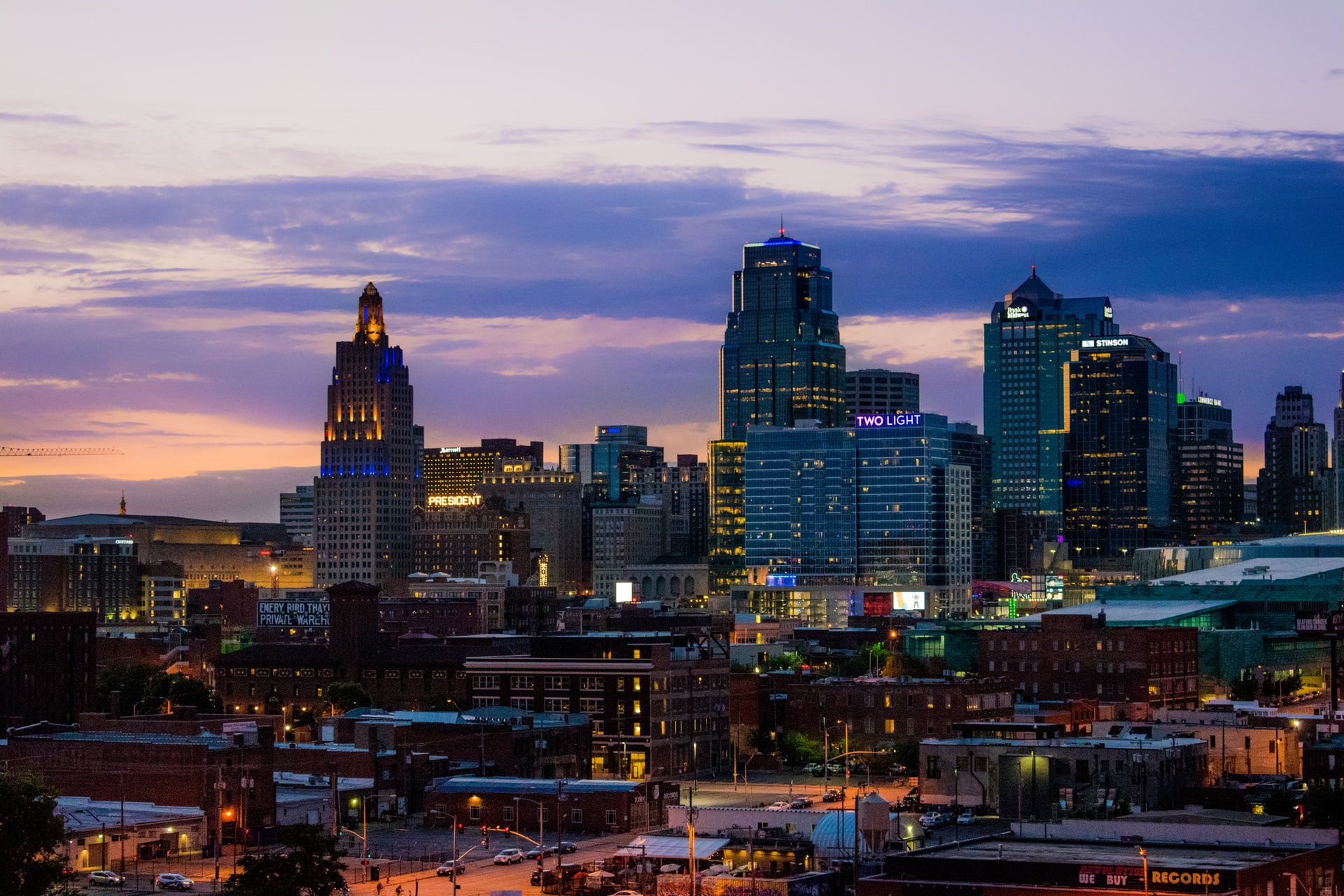
Photo: Kansas City, Missouri, is one city that has found a high-tech way to upgrade its aging water infrastructure (via Colton Sturgeon/Unsplash).
Climate change will put additional pressure on stressed infrastructure. Those pipes face particular challenges with extreme rain events and flash floods. Some cities are being proactive, and just in time. For example, in 2010, Kansas City, Missouri, recognized that the city needed to replace its 140-year old water and sewer pipes. Unable to afford the associated price tag, the city unveiled its Smart Sewer Program, a 25-year, $4.5 billion plan, which included investing in sensors to control sewer and stormwater flows and provide deep data sets to enable city planners to precisely pinpoint where the most critical upgrades were needed.
The city installed 300 sensors covering over 300 square miles. When record-breaking floods inundated the city in 2019, the water and wastewater system became overwhelmed. Increased rainfall and flash floods are likely in the city’s future. Having a smart system in place can provide real-time monitoring to respond to emergency situations and, optimally, mitigate damage and enhance emergency response time as well as improve the speed of recovery.
Advanced technologies for water
Sensors are tried and true technologies and provide improved data for water utilities, but may be out of range for some utilities, at least on a wide-scale deployment, based on cost. Other technologies continue to advance in the water space.
For example, Xylem’s SmartBall technology is another method to help pinpoint pressure changes in real time, providing what is referred to as “decision intelligence” in the utility industry, i.e., providing accurate, up-to-the-second data to help decide the best course of action. Picture SmartBalls as free-swimming acoustic sensors that are highly sensitive to small leaks.
Al Cho, vice president and general manager for advanced infrastructure analytics at Xylem, refers to the approach as health care for water infrastructure. “Just like an X-ray helps identify hairline fractures, a SmartBall listens to the water and can find small leaks before larger failures occur,” Mr. Cho said. Similar monitoring solutions can be deployed to act like a FitBit for pipelines. “This allows utilities to address the weaknesses in the infrastructure with precision.”
Climate change will have a significant effect on our water systems; we already know this. Making our water infrastructure more resilient through upgrading with precision and using technology to help harden critical infrastructure, we enable our utilities and their customers to ensure safe and secure water supplies in an uncertain future.
Image credit: Pixabay
3p Weekend: Musicians, Museums and Zoos Lift Spirits with Live Streaming During COVID-19 Outbreak


Across the world, municipalities enacted bans on mass gatherings to slow the spread of COVID-19. Many people choose to self-isolate to do what medical experts say needs to happen: flatten the curve. Live streaming is one way to lift spirits. And luckily, live streaming options abound.
While people are not able to attend conferences in the flesh, musicians across genres are offering concerts via social media. Russian-German pianist Igor Levit began offering live performances through Twitter last week, and as of press time he continues to do so. He is not the only classical musician to live stream performances. The Berlin Philharmonic, London Symphony Orchestra and the Philadelphia Orchestra are just three among many symphonies with plans to live stream performances.
From opera to punk, the virtual concert halls are open
The Metropolitan Opera announced on March 13 that it would stream its performances for free through its website starting on March 16 with the 2010 performance of Bizet’s Carmen. Every night the Met will offer different performances from the past 14 years on its website. The nightly stream starts at 7:30 pm EDT and remains available for 20 hours. “We’d like to provide some grand opera solace to opera lovers in these extraordinarily difficult times,” said Met General Manager Peter Gelb.
The Celtic punk band Dropkick Murphys has long held a concert on St. Patrick’s Day. This year, the band offered the concert for free through a live stream on YouTube, Facebook, Instagram, and Twitter. “For the first time in 24 years, we are not playing on St. Patrick’s Day weekend. The current world situation is the ONLY thing that would ever stop us from doing so,” the band stated on its website.
Other musicians have chosen to offer daily streams. Ben Gibbard is one of them. The singer-songwriter and guitarist known best as the lead guitarist of the indie rock band Death Cab for Cutie live streams every day at 4 pm PST via YouTube and Facebook.
There are countless other musicians of every genre imaginable offering performances online for their fans. The message is clear from musicians whose work has been canceled due to COVID-19: the show must go on.
Museums, art galleries, and zoos offer virtual tours
Many schools are closed for at least a month, leaving parents scrambling to find activities for their children. More than 2,500 museums and galleries worldwide have partnered with Google Arts and Culture including Musée d’Orsay in Paris, National Gallery in London, Van Gogh Museum in Amsterdam and National Gallery of Art in Washington, D.C. The Google Arts & Culture app makes it easy to view participating museums and galleries on a smartphone.
Google’s The Open Heritage series allows people to view at-risk heritage sites in 3D. The offerings include Ananias Chapel in Syria. Viewers can get an up-close look at the ancient underground chapel in Damascus, Syria and find out information about it.

Photo: Philadelphia's Museum of the American Revolution is offering virtual tours
In Philadelphia, the Museum of the American Revolution is temporarily closed to the public, but virtual visitors can check out the museum’s content from anywhere with free digital resources for all ages. Options include a virtual tour, a virtual field trip, an archive of book excerpts focused on the revolution and a digitized collection of the museum's art and artifacts.
Zoos around the world also offer live streams of exhibits and certain animals. The San Diego Zoo offers a variety of live streams for its exhibits, including ape, panda, elephant, and tiger exhibits. The Cincinnati Zoo and Botanical Gardens offers Home Safaris Live on Facebook on weekdays at 3 pm EDT. The Monterey Bay Aquarium has live streams that include a coral reef cam, Monterey Bay cam, and an open sea cam.
As we wait out COVID-19, streaming options keep multiplying
Sports fans this spring are out of luck. The NBA and NHL ended their seasons in a move to contain the spread of COVID-19 while baseball ended its spring training. The NCAA canceled March Madness. Ken Burns announced via a tweet that PBS will stream his 18-hour series Baseball for free, “so we can participate in the national pastime together.” PBS is not the only one to offer something for sports fans to view. The NFL and NBA offer fans a chance to view old games. NFL fans have free access to NFL Game Pass until May 31 and NBA fans have free access to NBA League Pass until April 22.
Media companies keep adding more content: Disney, for example, released Frozen 2 far earlier than planned on its streaming service. The streaming service Sling TV announced it will offer some of its content for free. The free content includes movies, children’s content, lifestyle and entertainment programming, and ABC News Live. “With many Americans finding themselves staying at home, we have an opportunity to use our platform to help them deal with this rapidly evolving situation,” said Warren Schlichting, group president, SLING TV.
Image credits: San Diego Zoo; Museum of the American Revolution/Facebook